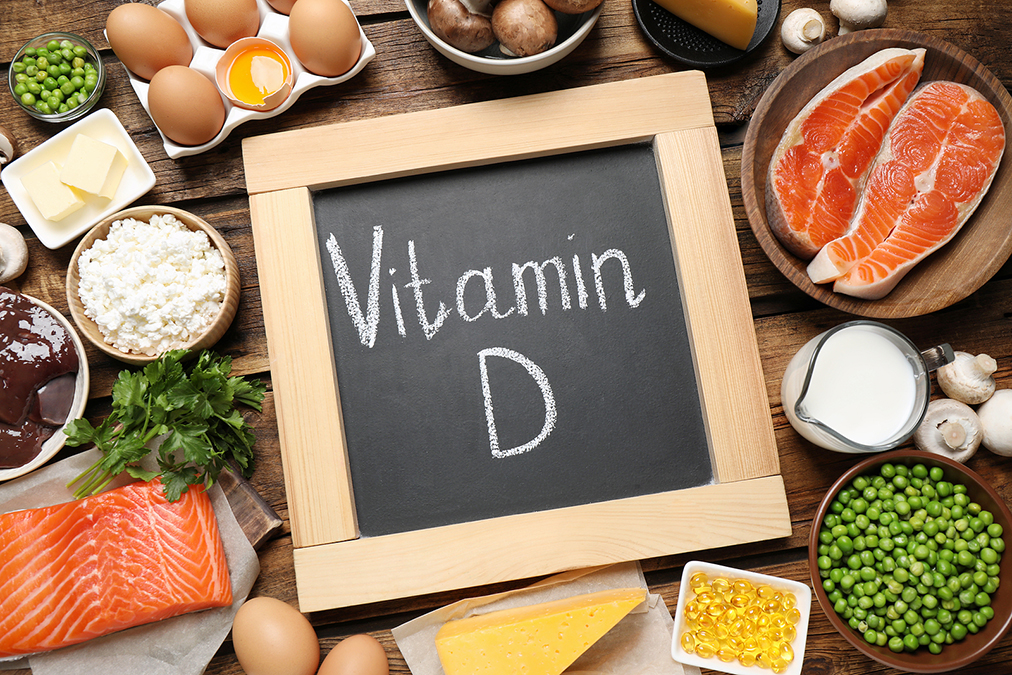 We need to talk. There is a vitamin that just about everyone says is great for your cardiovascular health. Even most respected natural health experts agree on the wonders of this vitamin.
We need to talk. There is a vitamin that just about everyone says is great for your cardiovascular health. Even most respected natural health experts agree on the wonders of this vitamin.
But in reality, this vitamin can damage your cardiovascular system—severely—by hardening your blood vessels, for example, along with all the resulting complications.
Most unfortunate of all is that half of all patients over 60 are strongly encouraged to stock up on this vitamin.
The investigation group from Johns Hopkins Medical School looked at data from the National Health and Nutrition Examination Survey from 2001 to 2006, which collected data from 15,000 participants.
None of the survey participants had cardiovascular-related conditions, but rather, all had fairly low amounts of vitamin D.
The results of the survey brought to light an interesting connection between vitamin D levels and CRP, a known marker for cardiovascular inflammation associated with stiffening of blood vessels.
Researchers found that study participants who had what were considered “normal” levels of vitamin D had significantly lower levels of inflammation.
However, the researchers also discovered that any additional increase of vitamin D in blood levels was related to a significantly heightened risk for CRP (a marker of cardiovascular inflammation).
Nevertheless, it is important to understand that vitamin D is crucial to our cardiovascular health, and many studies proved that optimum vitamin D levels reduce the risk of heart disease, lower blood pressure, and even reduce mortality.
However, there can be too much of a good thing, and vitamin D supplements may pose unnecessary health risks to people.
Health care providers should be aware of the potential risks of overloading on vitamin D and recommend the vitamin only when there is an obvious need for it.
Remember that the best source of vitamin D is sunshine. A daily walk outside for at least 20 minutes in the morning will ensure that you have the optimal levels of vitamin D in your system.
And you can never overdose on vitamin D from sunlight; your body will just stop absorbing it.
However, if you are not sure if you lack or have too much of this vitamin, talk to your physician and ask for a blood test to determine your vitamin D levels.
The generally accepted recommended blood levels of vitamin D are 50–70 nanograms per milliliter (ng/ml).
However, if you do need to supplement with vitamin D, at least make sure that you are using vitamin D3 (cholecalciferol) and NOT Vitamin D2 (ergocalciferol). Vitamin D3 is the same type of vitamin D as produced in our bodies in response to sunshine, while vitamin D2 is a synthetic form of vitamin D that is typically prescribed by doctors.
These 3 exercises could help save your life by lowering your blood pressure. Click this link and say “good riddance” to high blood pressure…
Stop your high cholesterol dead in its tracks by cutting out this one common ingredient you didn’t even know you were consuming…

 Overcoming IBD
Overcoming IBD Multiple Sclerosis
Multiple Sclerosis Banishing Bronchitis
Banishing Bronchitis Gum Disease Gone
Gum Disease Gone Overcoming Onychomycosis
Overcoming Onychomycosis Neuropathy No More
Neuropathy No More The Prostate Protocol
The Prostate Protocol Brain Booster
Brain Booster
 Ironbound
Ironbound
 Solution for Shingles
Solution for Shingles
 The Bone Density Solution
The Bone Density Solution
 The Ultimate Healing Protocol
The Ultimate Healing Protocol
 The Parkinson's Protocol
The Parkinson's Protocol
 The Chronic Kidney Disease Solution
The Chronic Kidney Disease Solution
 Overthrowing Anxiety
Overthrowing Anxiety The Fatty Liver Solution
The Fatty Liver Solution The Hypothyroidism Solution
The Hypothyroidism Solution
 The End of Gout
The End of Gout The Blood Pressure Program
The Blood Pressure Program
 The Oxigized Cholesterol Strategy
The Oxigized Cholesterol Strategy
 Stop Snoring And Sleep Apnea Program
Stop Snoring And Sleep Apnea Program
 The Arthritis Strategy
The Arthritis Strategy The Vertigo & Dizziness Program
The Vertigo & Dizziness Program The 3-Step Diabetes Strategy
The 3-Step Diabetes Strategy Hemorrhoids Healing Protocol
Hemorrhoids Healing Protocol The Erectile Dysfunction Master
The Erectile Dysfunction Master Weight Loss Breeze
Weight Loss Breeze The IBS Program
The IBS Program The Insomnia Program
The Insomnia Program The Migraine and Headache Program
The Migraine and Headache Program The Neck Pain Solution
The Neck Pain Solution The Menopause Solution
The Menopause Solution The Ejaculation Master
The Ejaculation Master The TMJ Solution
The TMJ Solution The Acid Reflux Solution
The Acid Reflux Solution The Fibromyalgia Solution
The Fibromyalgia Solution The Psoriasis Strategy
The Psoriasis Strategy